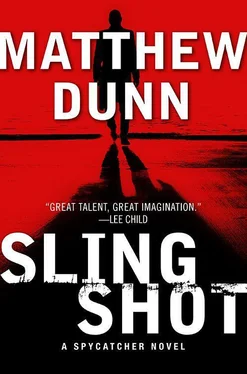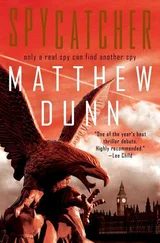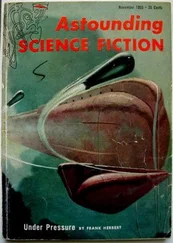Matthew Dunn - Slingshot
Здесь есть возможность читать онлайн «Matthew Dunn - Slingshot» весь текст электронной книги совершенно бесплатно (целиком полную версию без сокращений). В некоторых случаях можно слушать аудио, скачать через торрент в формате fb2 и присутствует краткое содержание. Год выпуска: 2013, ISBN: 2013, Издательство: William Morrow, Жанр: Триллер, на английском языке. Описание произведения, (предисловие) а так же отзывы посетителей доступны на портале библиотеки ЛибКат.
- Название:Slingshot
- Автор:
- Издательство:William Morrow
- Жанр:
- Год:2013
- ISBN:9780062038029
- Рейтинг книги:5 / 5. Голосов: 1
-
Избранное:Добавить в избранное
- Отзывы:
-
Ваша оценка:
- 100
- 1
- 2
- 3
- 4
- 5
Slingshot: краткое содержание, описание и аннотация
Предлагаем к чтению аннотацию, описание, краткое содержание или предисловие (зависит от того, что написал сам автор книги «Slingshot»). Если вы не нашли необходимую информацию о книге — напишите в комментариях, мы постараемся отыскать её.
Slingshot — читать онлайн бесплатно полную книгу (весь текст) целиком
Ниже представлен текст книги, разбитый по страницам. Система сохранения места последней прочитанной страницы, позволяет с удобством читать онлайн бесплатно книгу «Slingshot», без необходимости каждый раз заново искать на чём Вы остановились. Поставьте закладку, и сможете в любой момент перейти на страницу, на которой закончили чтение.
Интервал:
Закладка:
And that could only mean he was now loose, traveling toward the Black Forest. But Mikhail had no idea where in the vast region Schreiber was headed.
He ran back to his car, pressed hard on the accelerator, and chased after Will’s team. Following the big MI6 officer was his last remaining hope. But he’d have no hesitation in killing the operative if he got in his way.
Twenty-Five
An icy early-morning wind buffeted Simon Rubner as he knelt down and used a trowel to dig through the Black Forest mountaintop’s soil. Momentarily, he wondered if he was in the right place, whether the code’s numbers had been altered when in the SVR or CIA vaults. His tool struck metal, he wiped away soil, and he sighed with relief.
The metal box was in the hole.
He stared at it.
Many people had gone to enormous lengths to get him to this place, but none of them had sacrificed as much and worked as hard as he had to ascertain the location of the DLB. It had started six months before. He’d been toying with leaving Mossad to earn a more lucrative salary in the private sector and had made some discreet enquiries with prospective employers. He later learned that one of them was a cover company owned by Mr. Schreiber. Over the course of three weeks, he was interviewed by twelve men and women. They’d told him nothing about their backgrounds, but he could tell they were all former intelligence officers because they asked him precisely worded questions that were designed to not only define whether his responses were consistent but also to subtly elicit a portrait of his character. He could see what they were doing and they knew it. So he’d played it straight and told them that money was his prime motivator and that legalities had never been particularly interesting to him in his line of work. At the end of his twelfth interview, the female interviewer told him that she was recommending that he be advanced to the final interview and that if he was successful he would be hired. Two days later, on a Sunday morning, an elderly, diminutive gentleman knocked on the door to his home in the suburbs of Tel Aviv. He introduced himself as Colonel Kurt Schreiber and said that he was there to conduct the final interview.
Simon was totally unprepared for the interview and had to ask his wife and teenage daughter to go out for a few hours to give them privacy. He sat with Mr. Schreiber in the living room until midafternoon. At the end of the session, he was mentally exhausted. The German had barely spoken, instead had sat motionless, his eyes flickering behind his rimless glasses, with a slight smile on his face and an expression and demeanor that suggested immense intellect, focus, perception, and cruelty.
Simon had guided him to the front door, at which point Mr. Schreiber turned to him and said that he would pay him one million dollars per year with performance bonus on top and that he was to resign the next day. Simon had instantly accepted. The other jobs he was considering had salaries less than a fifth of what the German was offering.
After he’d given his notice with Mossad, he’d taken his wife and daughter to New York. Upon landing at JFK, he’d told the immigration officer that he was a private investor looking to set up a business in the States. The officer grilled him for fifteen minutes before telling him that he and his family needed to wait in a room until a decision had been made as to whether he could enter the country. Two hours later, another man entered the room and asked more questions before obtaining all of Simon’s contact details and letting him go.
Of course, the delay of entry had allowed Immigration to contact other U.S. agencies and ultimately the CIA, who would have given U.S. Immigration assurances that they and the FBI would keep their eyes on the known Mossad officer and would use him for their own benefit.
He put his family in a Manhattan apartment and took possession of one of Mr. Schreiber’s dormant but legal companies.
Four men from the CIA approached him ten days later, saying they were from a Belgium consultancy called Gerlache and were seeking to establish a partnership with a company that could provide information to U.S. companies seeking to set up operations in the Middle East. He’d accepted, and at first their requirements from him were unremarkable. He took their money, telling them that he needed the cash to support a wife and daughter who drove him crazy with their shopping sprees and that the daughter wanted them to stay in the States so that she could attend one of the fancy and expensive East Coast universities.
It was exactly what they wanted to hear.
And accelerated their decision to tell him that they had affiliations to U.S. political entities, knew that he was an Israeli intelligence officer, and wanted him to pass them Israeli secrets.
He’d pretended to be shocked and confused. He told them that what they were asking of him would make him a traitor, but that he’d become reliant on their money. They gave him assurances that no one would ever know about his secret work for them and that they would pay him double. He agreed. They had him hook, line, and sinker.
Or rather, he had them hook, line, and sinker.
They could barely contain their excitement when he started feeding them the names of Israeli agents operating in the West. But he did it slowly on the pretext that he had to discreetly get the information from Mossad files, whereas the truth was that Mr. Schreiber had told him to get all the information before he resigned.
He knew that the CIA officers were telling him the truth when they said that he’d become the Agency’s top Israeli agent. And he was sure that his work for the officers had done wonders for their careers. It came as no surprise to them when he said that Mossad was likely to post him back to Israel unless he could convince his masters that he’d recruited a U.S. spy. They said they’d play the role of that spy and would give him U.S. secrets that should placate his employer. Everything they gave him was low-level crap that Mossad already knew. He played along with that for a while but one day said that he needed much more or Mossad was going to order him to find a better spy. He told them that he needed the identity of a Russian SVR officer who was on the Agency’s books. This clearly unsettled them, but a day later they met and supplied him with the name of Lenka Yevtushenko. They said they’d set up an introduction to the Russian and that in return he’d better give them a whole lot more names and details of Israeli operations on American soil.
He was sure that the four CIA officers had given him the name of the SVR officer without authorization to do so.
He gave Yevtushenko’s details to Mr. Schreiber, who approached the Russian and said that he had to steal the code or else Mr. Schreiber would tell the SVR that he was a CIA spy. Yevtushenko was petrified and said that his ability to travel was tightly restricted but that he would do the theft if Mr. Schreiber could help him get out of Russia. Mr. Schreiber agreed and told him that he was to use a highly effective Polish exfiltration route, but under no circumstances was he to go anywhere near the Polish embassy in Moscow as it would be under surveillance. He gave him precise instructions. Yevtushenko walked into the small Polish consulate in Saint Petersburg, said that he needed to speak in strict confidence to someone in the consulate who was familiar with intelligence matters, and was told that there was no one like that there but that he should liaise with their embassy in Moscow where there were professionals who could help him. He said he had to escape to Poland with a secret, that he couldn’t go anywhere near the Moscow embassy, that time was running out. Some urgent calls were made to the embassy; everything was arranged for him. That afternoon, he stole half of the military grid reference from the SVR vaults and used the Polish exfiltration route to enter Gdansk.
Читать дальшеИнтервал:
Закладка:
Похожие книги на «Slingshot»
Представляем Вашему вниманию похожие книги на «Slingshot» списком для выбора. Мы отобрали схожую по названию и смыслу литературу в надежде предоставить читателям больше вариантов отыскать новые, интересные, ещё непрочитанные произведения.
Обсуждение, отзывы о книге «Slingshot» и просто собственные мнения читателей. Оставьте ваши комментарии, напишите, что Вы думаете о произведении, его смысле или главных героях. Укажите что конкретно понравилось, а что нет, и почему Вы так считаете.












